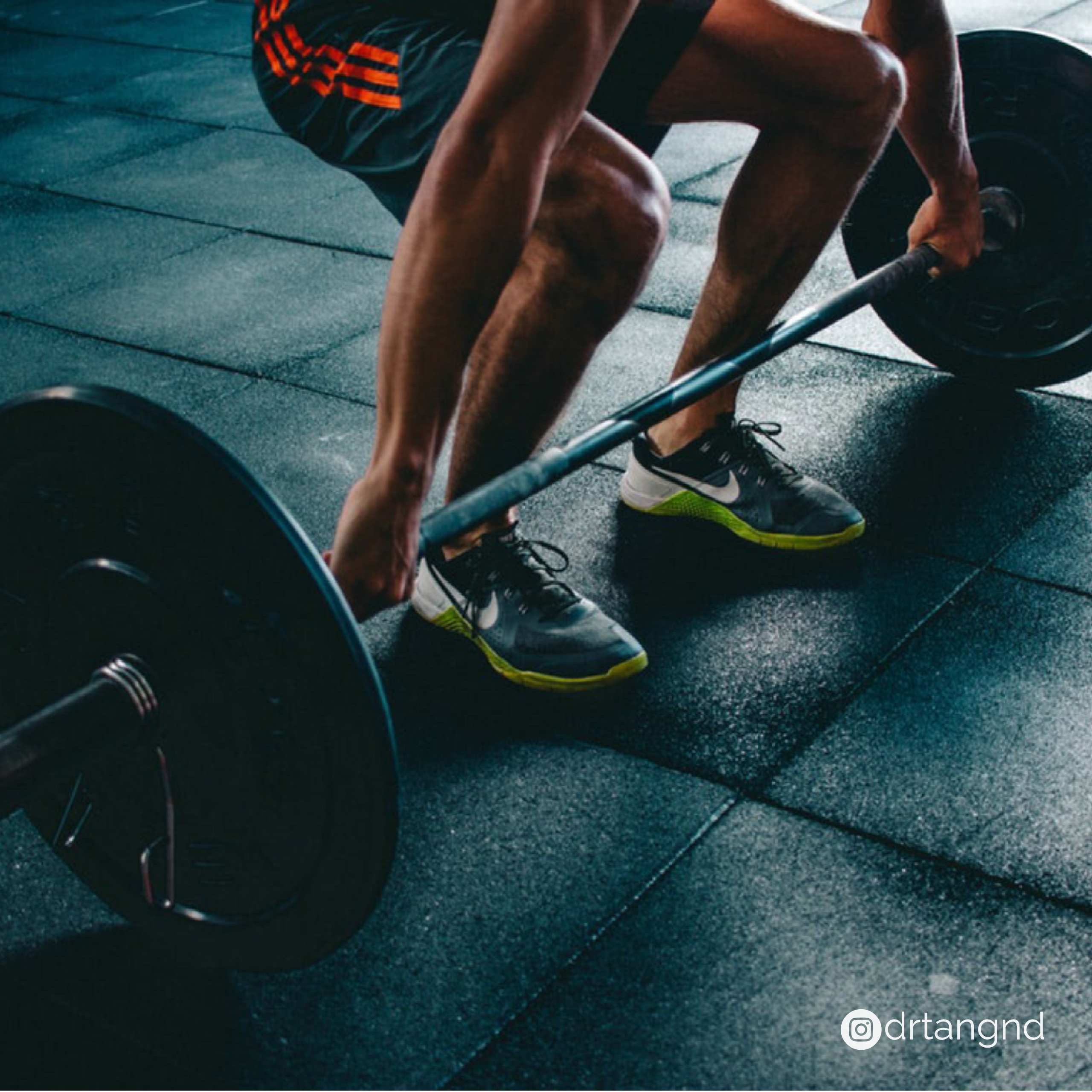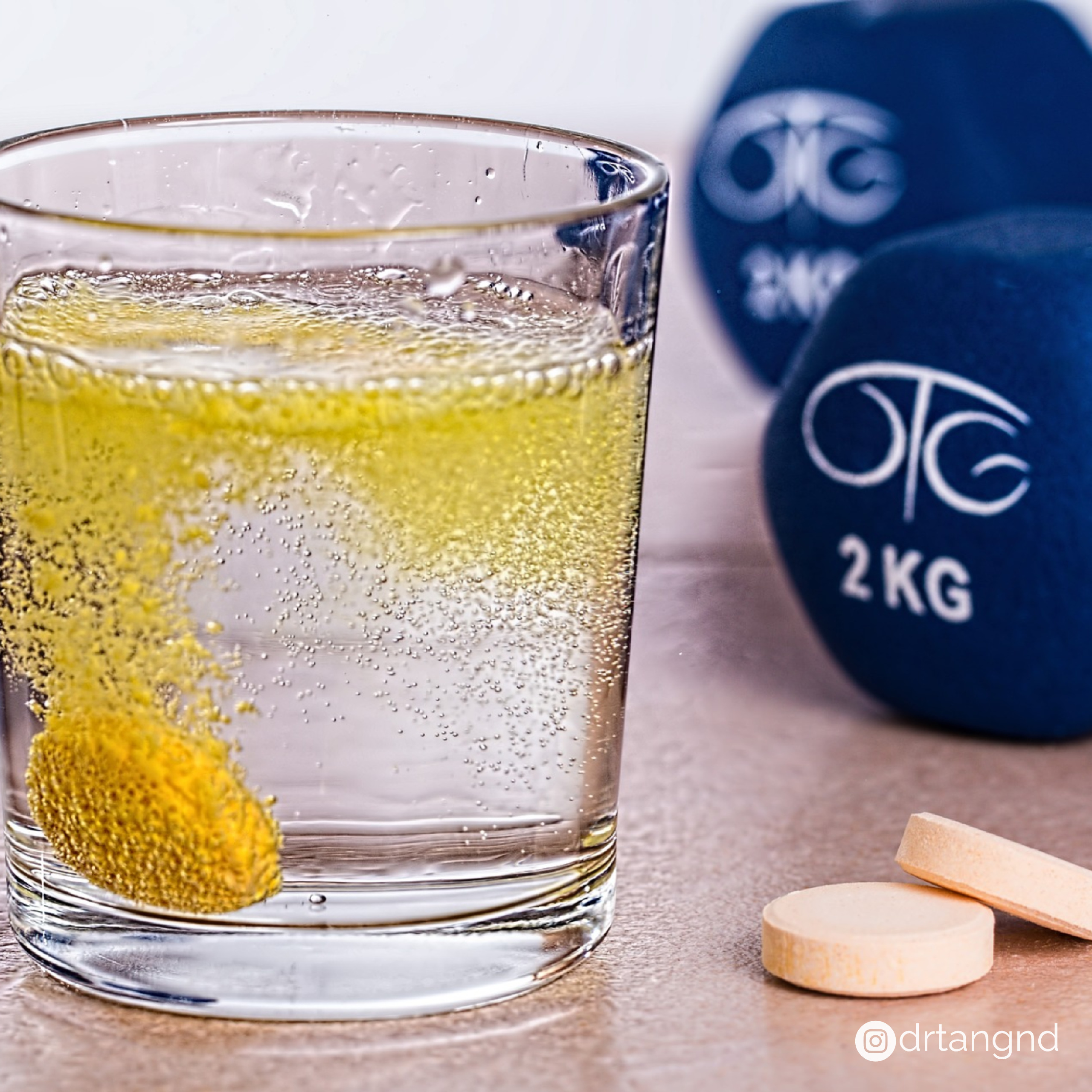Common Nutrient Deficiencies in Athletes
I am in constant awe of the rigor and dedication it takes for athletes and fitness enthusiasts alike to reach their goals. If you think about it, athletes are a little crazy (they are willingly putting their bodies through tremendous physical and mental stress daily) – but truly inspirational nonetheless. Because of this increased metabolic demand and lifestyle (as well as an increased risk of a “leakier” gut as per my previous article), athletes are susceptible to some nutrients deficiencies that can greatly impair their health. Basically, any gut problems put you at increased risk for all of the deficiencies mentioned below.
There is evidence that vitamin deficiencies have a vast affect on an athlete’s physical abilities, and that performance usually improves once the deficiency is corrected [1]. Poor vitamin and mineral status can lead to increased risk of fractures and both cognitive and physical performance in athletes (females in particular) [2]. There is also studies that show macronutrient balance is insufficient in female athletes, further increasing their risk [3]. Below I’ve listed some of the common nutrient deficiencies in athletes, although this is not a comprehensive list. Your deficiencies are individual to factors such as your lifestyle, medical history and type of sport. Book a free 15 minute consultation today if you have specific questions related to you!
Magnesium
- This is by far one of my most favourite supplements (for athletes and the general population alike). This mineral is an all-star player, required for many metabolic processes in the body, and influences several different organ systems (cardiovascular, nervous, endocrine, etc). Some use it for high blood pressure, sleep, immune function, blood sugar regulation, and energy production (just to name a few). The majority of our population is deficient (due to factors such as depletion in soil therefore decrease in quality and quantity in our crops), and athletes are no exception (especially with excessive sweating) [4]. Some studies quote that surveyed athletes consume 60-75% below recommended levels [5]. Magnesium supplementation has been shown to promote strength [6,7] and even influence testosterone levels [8]. It has also been noted to enhance peak oxygen uptake and total work output, improve cardiovascular efficiency, and buffer lactic acid [9].
- Signs/symptoms of deficiency: muscle tension, spasms/cramping, constipation, difficulty sleeping, fatigue, impaired recovery
- Sources: green leafy vegetables e.g. spinach, sunflower and sesame seeds, beans, soy milk
Iron
- Otherwise known as the number 1 deficiency I look for in female athletes due to menstruation. Iron deficiency is common due to an increased demand (due to a shift in increased red blood cells (RBCs) from training adaptation), and increased loss (due to increased body temperature, heavy sweating, and foot-strike hemolysis, where the act of a foot strike physically breaks down RBCs) [10,11]. The good news is you can easily test your body’s iron stores through a blood test.
- Signs/symptoms of deficiency: decreased endurance, fatigue, frequent injuries, low immunity, heavy menses, irritability, vegan/vegetarian diet
- Sources: liver, black strap molasses, meat (chicken, beef, etc), cooked beans, pumpkin, sesame, and squash seeds, nuts, spinach
Vitamin D
- This vitamin is mostly known for its role in bone health, but it has a wide reach – from immunity, to mood disorders, to protein and hormone synthesis, and much more. The primary source is from sun exposure, but there is some that comes from our food as well (see sources below). One study noted 77% of the general population is deficient [12]. Athletes who train indoors are especially at risk for deficiency e.g. dancers and gymnasts. (Fun fact: you have to have good liver and kidney function in order for your body to convert Vitamin D from sun exposure into a biologically active form!) As our muscle cells have vitamin D receptors, there is some research that link low vitamin D levels to muscle weakness, and improvement in short term sprint time with supplementation compared to placebo [13]. Interestingly, 25-OH Vitamin D levels of 135 nmol/L are associated with peak athletic performance, which is also associated with preventing some cancers, diabetes, hypertension, depression, and cognitive impairments [14]. Studies suggest that maintaining adequate vitamin D levels in athletes is necessary for fracture prevention, total body inflammation, muscle function, immune status, and may help in recovery from injury [15]. Your vitamin D levels can be tested through a blood test, but levels vary throughout the year (and depending on where you live). The best time to do so in Ontario is in the spring, when levels are lowest.
- Signs/symptoms of deficiency: muscle weakness, low mood, liver/kidney dysfunction, gluten sensitivity/intolerance
- Sources: liver, salmon, fortified foods (milk, juice, cereals, infant formula, etc), egg yolk, mushrooms
Keep up to date by following me on Instagram, Facebook, and Twitter (@drtangnd).
References:
- Williams MH. (1989). Vitamin supplementation and athletic performance. Int J Vitam Nutr Res Suppl. 30:163-91.
- McClung JP, Gaffney-Stomberg E, Lee JJ. (2014). Female athletes: a population at risk of vitamin and mineral deficiencies affecting health and performance. J Trace Elem Med Biol. 2014 Oct;28(4):388-92. doi: 10.1016/j.jtemb.2014.06.022. Epub 2014 Jul 5.
- Bernad Asencio L, Reig García-Galbis M. (2015). ENERGY AND MACRONUTRIENT INTAKE IN FEMALE ATHLETES. Nutr Hosp. 32(5):1936-48. doi: 10.3305/nh.2015.32.5.9280.
- Czaja J, Lebiedzińska A, Marszałł M, Szefer P. (2011). Evaluation for magnesium and vitamin B6 supplementation among Polish elite athletes. Rocz Panstw Zakl Hig. 62(4):413-8.
- Volpe SL. (2015). Magnesium and the athlete. Curr Sports Med Rep. 14(4):279-83. doi: 10.1249/JSR.0000000000000178.
- Santos DA, Matias CN, Monteiro CP, Silva AM, Rocha PM, Minderico CS, Bettencourt Sardinha L, Laires MJ. (2011). Magnesium intake is associated with strength performance in elite basketball, handball and volleyball players. Magnes Res. 24(4):215-9. doi: 10.1684/mrh.2011.0290.
- Matias CN, Santos DA, Monteiro CP, Silva AM, Raposo Mde F, Martins F, Sardinha LB, Bicho M, Laires MJ. (2010). Magnesium and strength in elite judo athletes according to intracellular water changes. Magnes Res. 23(3):138-41. doi: 10.1684/mrh.2010.0217. Epub 2010 Sep 22.
- Cinar V, Polat Y, Baltaci AK, Mogulkoc R. (2011). Effects of magnesium supplementation on testosterone levels of athletes and sedentary subjects at rest and after exhaustion. Biol Trace Elem Res. 2011 Apr;140(1):18-23. doi: 10.1007/s12011-010-8676-3. Epub 2010 Mar 30.
- Nielson, F.H and Lukaski (2006, Sept.). Update on the relationship between magnesium and exercise. Magnes Res. 19(3): 180-9.
- Beard, J & Tobin, B. (2000). Iron status and exercise. American Journal of Clinical Nutrition, 72(suppl), 594S-597S
- Clénin G, Cordes M, Huber A, Schumacher YO, Noack P, Scales J, Kriemler S. (2015). Iron deficiency in sports – definition, influence on performance and therapy. Swiss Med Wkly. 2015 Oct 29;145:w14196. doi: 10.4414/smw.2015.14196. eCollection 2015.
- Ogan D, Pritchett K. (2013). Vitamin D and the athlete: risks, recommendations, and benefits. Nutrients. 5(6):1856-68. doi: 10.3390/nu5061856.
- von Hurst PR, Beck KL. (2014). Vitamin D and skeletal muscle function in athletes. Curr Opin Clin Nutr Metab Care. 17(6):539-45. doi: 10.1097/MCO.0000000000000105.
- (Cannell, J.J. et al. (2009, May). Athletic performance and vitamin D. Med Sci Sports, 41(5):1102-10.
- Larson-Meyer E. (2013). Vitamin D supplementation in athletes. Nestle Nutr Inst Workshop Ser. 75:109-21. doi: 10.1159/000345827. Epub 2013 Apr 16.

